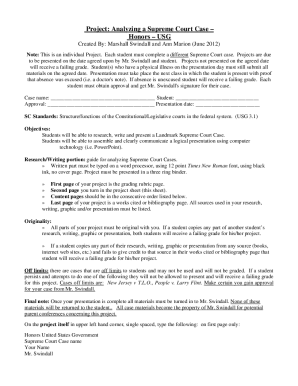Analysis Of PwC's Pullout From Nine Sub-Saharan African Countries

Table of Contents
The Affected Countries and Their Economic Contexts
PwC's decision impacts nine Sub-Saharan African countries, each with its unique economic characteristics and business environment. Understanding the specific context of each nation is crucial to assessing the full ramifications of this "PwC Sub-Saharan Africa" withdrawal.
- Angola: Characterized by an oil-dependent economy, Angola faces challenges with diversification and infrastructure development. Its business environment is often described as complex and bureaucratic.
- Key indicators: GDP growth fluctuates significantly depending on oil prices; FDI remains relatively low. Political stability is a key concern.
- Burundi: A low-income country grappling with poverty and limited economic opportunities. Its investment landscape is hindered by political instability and weak governance.
- Key indicators: Low GDP growth; limited FDI; high levels of poverty.
- Central African Republic: Struggling with ongoing conflict and political instability, significantly impacting its economic growth and attracting FDI. The business environment is highly challenging.
- Key indicators: Very low GDP growth; extremely low FDI; high levels of poverty and conflict.
- Chad: An oil-producing nation, Chad’s economy is vulnerable to oil price fluctuations and suffers from corruption and weak governance.
- Key indicators: GDP growth tied to oil prices; FDI remains limited due to governance challenges.
- Congo, Republic of: Dependent on oil and mining, the country's economic growth is volatile and hampered by corruption.
- Key indicators: GDP growth largely driven by natural resources; FDI remains constrained by political risk.
- Equatorial Guinea: Reliant on oil revenues, the country's economy is highly vulnerable and faces challenges in diversification and governance.
- Key indicators: GDP growth highly volatile due to oil prices; FDI influenced by political stability concerns.
- Gabon: A resource-rich nation, Gabon's economy is dependent on oil and manganese, susceptible to price fluctuations.
- Key indicators: GDP growth linked to commodity prices; FDI is influenced by governance and political stability.
- Guinea-Bissau: One of the world's least-developed countries, Guinea-Bissau suffers from widespread poverty and political instability.
- Key indicators: Very low GDP growth; extremely limited FDI; high levels of poverty.
- Sao Tome and Principe: A small island nation facing challenges in economic diversification and sustainable development.
- Key indicators: Limited GDP growth; low FDI; vulnerability to natural disasters.
Potential Reasons Behind PwC's Decision
PwC's decision to withdraw likely stems from a confluence of factors, rather than a single cause. These reasons may include:
- Profitability Challenges: Low return on investment (ROI) in these markets compared to other regions could be a major driver. The relatively smaller size of these economies and the intense competition may have impacted profitability.
- Regulatory Hurdles and Compliance Costs: Navigating the complex regulatory environments in some of these countries can be expensive and time-consuming. High compliance costs and bureaucratic processes may have contributed to the decision.
- Operational Risks: Security concerns, political instability, and corruption present significant operational risks for businesses in these countries. These risks may have been considered too high by PwC.
- Strategic Refocusing: PwC may be reallocating resources to other regions with higher growth potential and greater profitability. This strategic refocusing might involve prioritizing markets with stronger economic outlooks.
- Impact of Global Economic Downturn: The global economic slowdown could have also influenced the decision, leading to a reassessment of investment strategies in riskier markets.
The Impact on the Affected Countries
PwC's withdrawal will undoubtedly have significant consequences for the affected countries, both in the short-term and long-term:
- Loss of Auditing Expertise and Professional Services: The absence of PwC will create a gap in auditing expertise and high-quality professional services, potentially hindering business development.
- Impact on Foreign Investment and Business Confidence: The withdrawal could negatively impact investor confidence and discourage further foreign direct investment (FDI), impacting economic growth.
- Challenges for Local Businesses: Local businesses will face challenges accessing quality auditing services, potentially hindering their growth and development.
- Increased Regulatory Scrutiny: The withdrawal may lead to increased regulatory scrutiny of other accounting firms operating in the region.
- Increased Reliance on Smaller, Local Accounting Firms: The departure of PwC will likely increase reliance on smaller, local firms, potentially highlighting the need for capacity building and support in the industry.
PwC's Official Statement and Response
PwC's official statement regarding the withdrawal should be carefully examined. While the specific reasons provided may vary, the company likely emphasized its commitment to global standards and a strategic realignment of resources. Analyzing the "PwC press release" and the "PwC official statement" is crucial for a complete understanding of their justification. (Note: This section would ideally include specific quotes and analysis from the official statement if it is publicly available).
Future Implications and Potential Alternatives
PwC's decision has broader implications for multinational corporations operating in Sub-Saharan Africa. It underscores the importance of thorough risk assessment and effective risk management strategies for businesses operating in developing economies. The withdrawal highlights potential challenges related to business continuity, especially for companies relying on PwC's services.
- Opportunities for Local and Regional Firms: This creates significant opportunities for local and regional accounting firms to expand their services and gain market share.
- Role of International Organizations: International organizations may step in to provide support and capacity building to local accounting firms.
Conclusion: Understanding the Implications of PwC's Pullout from Sub-Saharan Africa
PwC's withdrawal from nine Sub-Saharan African countries is a significant event with far-reaching consequences. The decision, driven by a combination of profitability challenges, regulatory hurdles, operational risks, and strategic refocusing, raises concerns about the business environment in the affected nations. The potential impact on foreign investment, local businesses, and the overall economic landscape warrants careful consideration. Further research into the "PwC's Pullout from Sub-Saharan Africa" is crucial to understanding its implications for the long-term development prospects of these nations. We encourage readers to delve deeper into the specifics of each affected country and consider the potential impact on the wider accounting and business services sector in the region. You can find more information by searching for "PwC Sub-Saharan Africa withdrawal" and related terms.

Featured Posts
-
 Trans Rights And Gender Critical Views Analyzing The Supreme Court Decisions Impact
Apr 29, 2025
Trans Rights And Gender Critical Views Analyzing The Supreme Court Decisions Impact
Apr 29, 2025 -
 The Zuckerberg Trump Dynamic Implications For The Tech Industry
Apr 29, 2025
The Zuckerberg Trump Dynamic Implications For The Tech Industry
Apr 29, 2025 -
 The Pete Rose Pardon Examining Trumps Rationale And Potential Impact
Apr 29, 2025
The Pete Rose Pardon Examining Trumps Rationale And Potential Impact
Apr 29, 2025 -
 A Comparative Analysis Of Porsches Market Performance Australia Vs The Rest Of The World
Apr 29, 2025
A Comparative Analysis Of Porsches Market Performance Australia Vs The Rest Of The World
Apr 29, 2025 -
 Is Kevin Bacon Returning For Tremor 2 On Netflix
Apr 29, 2025
Is Kevin Bacon Returning For Tremor 2 On Netflix
Apr 29, 2025
Latest Posts
-
 Our Yorkshire Farm Reuben Owen Opens Up About His Childhood Struggles
Apr 30, 2025
Our Yorkshire Farm Reuben Owen Opens Up About His Childhood Struggles
Apr 30, 2025 -
 Our Yorkshire Farm Channel 4 Announcement Sparks Further Complaints Against Amanda Owen
Apr 30, 2025
Our Yorkshire Farm Channel 4 Announcement Sparks Further Complaints Against Amanda Owen
Apr 30, 2025 -
 Amanda Owen Raising 9 Children On Our Farm Next Door
Apr 30, 2025
Amanda Owen Raising 9 Children On Our Farm Next Door
Apr 30, 2025 -
 Our Farm Next Doors Amanda Owen Family Photos And Rural Life
Apr 30, 2025
Our Farm Next Doors Amanda Owen Family Photos And Rural Life
Apr 30, 2025 -
 Watch Ru Pauls Drag Race Season 17 Episode 9 Free And Legal Streaming
Apr 30, 2025
Watch Ru Pauls Drag Race Season 17 Episode 9 Free And Legal Streaming
Apr 30, 2025
